Fleurs du Mal Magazine


Or see the index
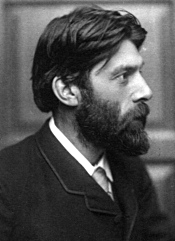
To the President of Magdalen College, Oxford
Since now from woodland mist and flooded clay
I am fled beside the steep Devonian shore,
Nor stand for welcome at your gothic door,
‘Neath the fair tower of Magdalen and May,
Such tribute, Warren, as fond poets pay
For generous esteem, I write, not more
Enhearten’d than my need is, reckoning o’er
My life-long wanderings on the heavenly way:
But well-befriended we become good friends,
Well-honour’d honourable; and all attain
Somewhat by fathering what fortune sends.
I bid your presidency a long reign,
True friend; and may your praise to greater ends
Aid better men than I, nor me in vain.
Robert Bridges
(1844-1930)
To the President of Magdalen College, Oxford
fleursdumal.nl magazine
More in: *War Poetry Archive, Archive A-B, Bridges, Robert, WAR & PEACE
‘En toch is alles wat we doen natuur’ bevat de mooiste natuurgedichten van dichter-tekenaar-bioloog Leo Vroman.
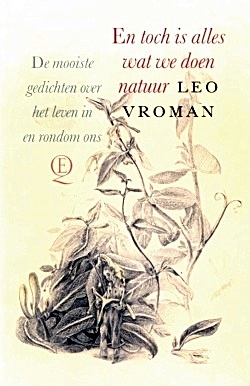 Vroman was gefascineerd door het leven in en rondom ons, dat hij tot in de wonderbaarlijkste details observeerde en beschreef.
Vroman was gefascineerd door het leven in en rondom ons, dat hij tot in de wonderbaarlijkste details observeerde en beschreef.
Tientallen bundels speelse poëzie schreef hij, een onuitputtelijke stroom gedichten van 1946 tot 2014, het jaar van zijn overlijden.
Mirjam van Hengel (auteur van het succesvolle Hoe mooi alles, over Leo en Tineke Vroman) maakte een nieuwe, ruime selectie uit de gedichten die Vroman schreef over de natuur – die van mensen, die van gras, bloemen en bomen, van orkanen en organen en van alle mogelijke dieren.
Leo Vroman (1915-2014) was dichter, prozaïst, essayist, illustrator en hematoloog. Hij studeerde biologie in Utrecht en vluchtte in 1940 naar Nederlands-Indië. In 1945 werd hij uit Japanse gevangenschap bevrijd en vestigde zich in Verenigde Staten, samen met zijn vrouw Tineke. Vroman debuteerde in 1946 met de bundel Gedichten. Vroman ontving in de loop van zijn leven zowat alle belangrijke literaire prijzen die er zijn. In 2006 verscheen het dagboek Misschien tot morgen.
En toch is alles wat we doen natuur
De mooiste gedichten over het leven in en rondom ons
Auteur: Leo Vroman
Redactie: Mirjam van Hengel
Uitgeverij: Querido
Hardcover
Taal: Nederlands
Afmetingen: 31x223x142 mm
Gewicht:481,00 gram
Verschijningsdatum: 6 maart 2018
Druk 1
ISBN10 902140902X
ISBN13 9789021409023
Prijs: € 24,99
# Voor meer informatie ga naar de website: www.vromanfoundation.com
new books
fleursdumal.nl magazine
More in: Archive U-V, Archive U-V, Art & Literature News, Natural history, Vroman, Leo

Love Came to Us
Love came to us in time gone by
When one at twilight shyly played
And one in fear was standing nigh — –
For Love at first is all afraid.
We were grave lovers. Love is past
That had his sweet hours many a one;
Welcome to us now at the last
The ways that we shall go upon.
James Joyce
(1882-1941)
Love Came to Us
fleursdumal.nl magazine
More in: Archive I-J, Archive I-J, Joyce, James, Joyce, James
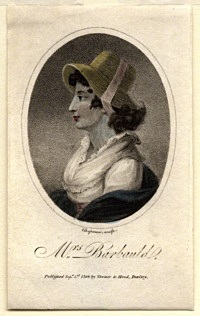
Life
Life! I know not what thou art,
But know that thou and I must part;
And when, or how, or where we met,
I own to me ‘s a secret yet.
But this I know, when thou art fled,
Where’er they lay these limbs, this head,
No clod so valueless shall be
As all that then remains of me.
O whither, whither dost thou fly?
Where bend unseen thy trackless course?
And in this strange divorce,
Ah, tell where I must seek this compound I?
To the vast ocean of empyreal flame
From whence thy essence came
Dost thou thy flight pursue, when freed
From matter’s base encumbering weed?
Or dost thou, hid from sight,
Wait, like some spell-bound knight,
Through blank oblivious years th’ appointed hour
To break thy trance and reassume thy power?
Yet canst thou without thought or feeling be?
O say, what art thou, when no more thou’rt thee?
Life! we have been long together,
Through pleasant and through cloudy weather;
‘Tis hard to part when friends are dear;
Perhaps ’twill cost a sigh, a tear;–
Then steal away, give little warning,
Choose thine own time;
Say not Good-night, but in some brighter clime
Bid me Good-morning!
Anna Laetitia Barbauld
(1743-1825)
Life
fleursdumal.nl magazine
More in: Archive A-B, Archive A-B, CLASSIC POETRY
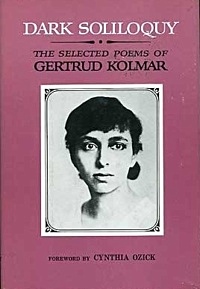
Du
Du. Ich will dich in den Wassern wecken!
Du. Ich will dich aus den Sternen schweißen!
Du. Ich will dich von dem Irdnen lecken,
Eine Hündin! Dich aus Früchten beißen,
Eine Wilde! Du. Ich will so vieles –
Liebes. Liebstes. Kannst du dich nicht spenden?
Nicht am Ende des Levkojenstieles
Deine weiße Blüte zu mir wenden?
Sieh, ich ging so oft auf harten Wegen,
Auf verpflastert harten, bösen Straßen;
Ich verdarb, verblich an Glut und Regen,
Schluchzend, stammelnd: “. . . über alle Maßen . . .”
Und die Pauke und das Blasrohr lärmten,
Und ich kam mit einer goldnen Kette,
Tanzte unter Lichtern, die mich wärmten,
Schönen Lichtern auf der Schädelstätte.
Und ich möchte wohl in Gärten sitzen,
Auch den Wein wohl trinken aus der Kelter,
Doch die Lider klafften, trübe Ritzen,
Und ich ward in Augenblicken älter.
Und auf meinen Leichnam hingekrochen
Ist die Schnecke träger Arbeitstage,
Zog den Schleimpfad dünner grauer Wochen,
Schlaffer Freude und geringer Plage.
In den Wäldern bin ich umgetrieben.
Ich verriet den Vögeln deinen Namen,
Doch die Vögel sind mir ferngeblieben;
Wenn ich weinte, zirpte keiner: Amen.
Und die Scheckenkühe an den Rainen
Grasten fort mit seltnem Häupterheben.
Da entfloh ich wieder zu den Steinen,
Die mir dieses Kind, mein Kind nicht geben.
Einmal muß ich noch im Finstren kauern
Und das Göttliche zu mir versammeln,
Es beschwören durch getünchte Mauern,
Seinem Ausgang meine Tür verrammeln,
Bis zum bunten Morgen mit ihm ringen.
Ach, es wird den Segen nimmer sprechen,
Nur mit seinem Schlag der erznen Schwingen
Diese flehnde Stirn in Stücke brechen…
Gertrud Kolmar
(1894-1943)
gedicht: Du
fleursdumal.nl magazine
More in: Archive K-L, Archive K-L, Kolmar, Gertrud

Joachim Ringelnatz
Seepferdchen
Als ich noch ein Seepferdchen war,
Im vorigen Leben,
Wie war das wonnig, wunderbar,
Unter Wasser zu schweben.
In den träumenden Fluten
Wogte, wie Güte, das Haar
Der zierlichsten aller Seestuten,
Die meine Geliebte war.
Wir senkten uns still oder stiegen,
Tanzten harmonisch umeinand,
Ohne Arm, ohne Bein, ohne Hand,
Die Wolken sich in Wolken wiegen.
Sie spielte manchmal graziöses Entfliehn,
Auf daß ich ihr folge, sie hasche,
Und legte mir einmal im Ansichziehn
Eierchen in die Tasche.
Sie blickte traurig und stellte sich froh,
Schnappte nach einem Wasserfloh
Und ringelte sich
An einem Stengelchen fest und sprach so:
Ich liebe dich!
Du wieherst nicht, du äpfelst nicht,
Du trägst ein farbloses Panzerkleid
Und hast ein bekümmertes altes Gesicht,
Als wüßtest du um kommendes Leid.
Seestütchen! Schnörkelchen! Ringelnaß!
Wann war wohl das?
Und wer bedauert wohl später meine restlichen Knochen?
Es ist beinahe so, daß ich weine –
Lollo hat das vertrocknete, kleine
Schmerzverkrümmte Seepferd zerbrochen.
Joachim Ringelnatz
(1883 – 1934)
Seepferdchen
fleursdumal.nl magazine
More in: Archive Q-R, Joachim Ringelnatz, Natural history
Liu Xia, China, is a poet, artist, and founding member of the Independent Chinese PEN Centre. Xia has been held under unofficial house arrest in her Beijing apartment since her late husband, the poet Liu Xiaobo, was named the winner of the Nobel Peace Prize in October 2010.
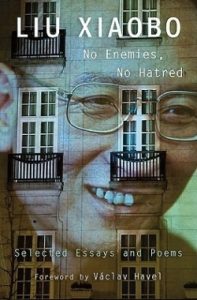 For seven years, Liu Xia (1961) was held in her apartment without access to phones, internet, doctors of her choice, or visitors. Following the death of her husband in July 2017 and the expression of concern for her wellbeing, Xia appeared in a video in which she asked to be left alone to mourn – it is thought that she may have done this at the behest of the authorities.
For seven years, Liu Xia (1961) was held in her apartment without access to phones, internet, doctors of her choice, or visitors. Following the death of her husband in July 2017 and the expression of concern for her wellbeing, Xia appeared in a video in which she asked to be left alone to mourn – it is thought that she may have done this at the behest of the authorities.
The Independent PEN Centre (ICPC) report that the restrictions applied against Liu Xia have relaxed somewhat; she has access to a telephone and is allowed to leave her home, but is under constant surveillance. Colleagues at ICPC report that Liu Xia has been removed from Beijing for the duration of the National People’s Congress; it is expected that she will be returned to her Beijing home after this date.
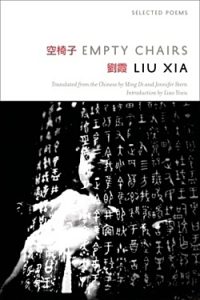
There are reports that Liu Xia’s mental and physical health continue to suffer due to her detention.
PEN International believes that the ongoing, extra-judicial house arrest of Liu Xia is a form of punishment for the human rights work carried out by her husband, Liu Xiaobo, and is extremely concerned for her physical and psychological integrity.
Please take action for Liu Xia.
# More information and how to act, see website PEN UK
fleursdumal.nl magazine
More in: Archive W-X, Archive W-X, Art & Literature News, EDITOR'S CHOICE, REPRESSION OF WRITERS, JOURNALISTS & ARTISTS

On Seeing a Piece of Our Artillery Brought into Action
Be slowly lifted up, thou long black arm,
Great gun towering towards Heaven, about to curse;
Sway steep against them, and for years rehearse
Huge imprecations like a blasting charm!
Reach at that Arrogance which needs thy harm,
And beat it down before its sins grow worse;
Spend our resentment, cannon,–yea, disburse
Our gold in shapes of flame, our breaths in storm.
Yet, for men’s sakes whom thy vast malison
Must wither innocent of enmity,
Be not withdrawn, dark arm, thy spoilure done,
Safe to the bosom of our prosperity.
But when thy spell be cast complete and whole,
May God curse thee, and cut thee from our soul!
Wilfred Owen
(1893 – 1918)
On Seeing a Piece of Our Artillery Brought into Action
fleursdumal.nl magazine
More in: Archive O-P, Owen, Wilfred, WAR & PEACE
W is de hoofdpersoon in de gedichten van De jongenskamer die samen één verhalend gedicht vormen.
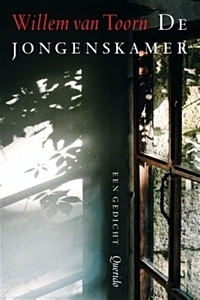 Het begint in de jaren voor de Tweede Wereldoorlog en eindigt in de onherkenbaar veranderde wereld van nu – maar wel met een liefdesgedicht.
Het begint in de jaren voor de Tweede Wereldoorlog en eindigt in de onherkenbaar veranderde wereld van nu – maar wel met een liefdesgedicht.
De kamer achter de werkplaats van W’s vader, een kleermaker, is de plek waar onder invloed van de tijd en de geschiedenis de eerste ideeën van W en zijn broers ontstaan over liefde, vriendschap, kunst en sport – én over de politieke en sociale werkelijkheid en de rol die het individu daarin kan spelen.
Al de liefdeservaringen, de vriendschappen, de boeken, de reizen die het leven van W bepalen, lijken toch altijd met onzichtbare draden verbonden met de eerste waarnemingen uit de jongenskamer.
Willem van Toorn (Amsterdam, 1935) is dichter, schrijver en vertaler. Hij publiceerde een groot aantal romans en verhalen- en gedichtenbundels, en was redacteur van het literair tijdschrift Raster.
Willem van Toorn
De jongenskamer.
Een gedicht
Uitgeverij: Querido
Paperback
ISBN: 9789021409351
Prijs: € 17,99
Publicatiedatum: 13-02-2018
new poetry
fleursdumal.nl magazine
More in: - Book News, Archive S-T, Archive S-T, Art & Literature News, LITERARY MAGAZINES, Willem van Toorn
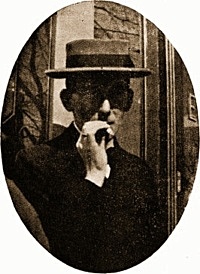
Die Sonne
Zwischen meinen Augenlidern fährt ein Kinderwagen.
Zwischen meinen Augenlidern geht ein Mann mit einem Pudel.
Eine Baumgruppe wird zum Schlangenbündel und zischt in den Himmel.
Ein Stein hält eine Rede. Bäume in Grünbrand. Fliehende Inseln.
Schwanken und Muschelgeklingel und Fischkopf wie auf dem Meeresboden.
Meine Beine strecken sich aus bis zum Horizont. Eine Hofkutsche knackt
Drüber weg. Meine Stiefel ragen am Horizont empor wie die Türme einer
Versinkenden Stadt. Ich bin der Riese Goliath. Ich verdaue Ziegenkäse.
Ich bin ein Mammuthkälbchen. Grüne Grasigel schnüffeln an mir.
Gras spannt grüne Säbel und Brücken und Regenbögen über meinen Bauch.
Meine Ohren sind rosa Riesenmuscheln, ganz offen. Mein Körper schwillt an
Von Geräuschen, die sich gefangen haben darin.
Ich höre das Meckern
Des großen Pan. Ich höre die zinnoberrote Musik der Sonne. Sie steht
Links oben. Zinnoberrot sprühen die Fetzen hinaus in die Weltnacht.
Wenn sie herunterfällt, zerquetscht sie die Stadt und die Kirchtürme
Und alle Vorgärten voll Krokus und Hyazinthen, und wird einen Schall geben
Wie Blech von Kindertrompeten.
Aber es ist in der Luft ein Gegeneinanderwehen von Purpur und Eigelb
Und Flaschengrün: Schaukeln, die eine orangene Faust festhält an langen Fäden,
Und ist ein Singen von Vogelhälsen, die über die Zweige hüpfen.
Ein sehr zartes Gestänge von Kinderfahnen.
Morgen wird man die Sonne auf einen großrädrigen Wagen laden
Und in die Kunsthandlung Caspari fahren. Ein viehköpfiger Neger
Mit wulstigein Nacken, Blähnase und breitem Schritt wird fünfzig weiß-
Juckende Esel halten, die vor den Wagen gespannt sind beim Pyramidenbau.
Eine Menge blutbunten Volks wird sich stauen:
Kindsbetterinnen und Ammen,
Kranke im Fahrstuhl, ein stelzender Kranich, zwei Veitstänzerinnen.
Ein Herr mit einer Ripsschleifenkrawatte und ein rotduftender Schutzmann.
Ich kann mich nicht halten: Ich bin voller Seligkeit. Die Fensterkreuze
Zerplatzen. Ein Kinderfräulein hängt bis zum Nabel aus einem Fenster heraus.
Ich kann mir nicht helfen: Die Dome zerplatzen mit Orgelfugen. Ich will
Eine neue Sonne schaffen. Ich will zwei gegeneinanderschlagen
Wie Zymbeln, und meiner Dame die Hand hinreichen. Wir werden entschweben
In einer violetten Sänfte über die Dächer euerer
Hellgelben Stadt wie Lampenschirme aus Seidenpapier im Zugwind.
Hugo Ball
(1886 – 1927)
Erstdruck in:
Die Aktion (Berlin),
4. Jg., Nr. 22, Mai 1914
fleursdumal.nl magazine
More in: Archive A-B, Ball, Hugo, DADA, Dada, Dadaïsme
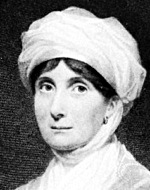
The Outlaw’s Song
The chough and crow to roost are gone,
The owl sits on the tree,
The hush’d wind wails with feeble moan,
Like infant charity.
The wild-fire dances on the fen,
The red star sheds its ray;
Uprouse ye then, my merry men!
It is our op’ning day.
Both child and nurse are fast asleep,
And closed is every flower,
And winking tapers faintly peep
High from my lady’s bower;
Bewilder’d hinds with shorten’d ken
Shrink on their murky way;
Uprouse ye then, my merry men!
It is our op’ning day.
Nor board nor garner own we now,
Nor roof nor latched door,
Nor kind mate, bound by holy vow
To bless a good man’s store;
Noon lulls us in a gloomy den,
And night is grown our day;
Uprouse ye then, my merry men!
And use it as ye may.
Joanna Baillie
(1762-1851)
The Outlaw’s Song
fleursdumal.nl magazine
More in: Archive A-B, Archive A-B, CLASSIC POETRY
Here, for the first time, is a volume that gathers the published verse of Allen Ginsberg in its entirety, a half century of brilliant work from one of America’s great poets.
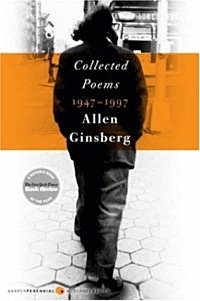 As the chief figure among the Beats, Ginsberg changed the course of American poetry, liberating it from closed academic forms with the creation of open, vocal, spontaneous, and energetic postmodern verse. Ginsberg’s raw tones and attitudes of spiritual liberation also helped catalyze a psychological revolution that has become a permanent part of our cultural heritage, profoundly influencing not only poetry, popular song, and speech but also our view of the world.
As the chief figure among the Beats, Ginsberg changed the course of American poetry, liberating it from closed academic forms with the creation of open, vocal, spontaneous, and energetic postmodern verse. Ginsberg’s raw tones and attitudes of spiritual liberation also helped catalyze a psychological revolution that has become a permanent part of our cultural heritage, profoundly influencing not only poetry, popular song, and speech but also our view of the world.
Allen Ginsberg (1926 – 1997) was the son of Naomi Ginsberg, Russian émigré, and Louis Ginsberg, lyric poet and school teacher, in Paterson, N.J. To these facts Ginsberg adds: “High school in Paterson till 17, Columbia College, merchant marine, Texas and Denver copyboy, Times Square, amigos in jail, dishwashing, book reviews, Mexico City, market research, Satori in Harlem, Yucatan and Chiapas 1954, West Coast 3 years. Later Arctic Sea trip, Tangier, Venice, Amsterdam, Paris, read at Oxford Harvard Columbia Chicago, quit, wrote “Kaddish” 1959, made tape to leave behind & fade in Orient awhile. Carl Solomon to whom “Howl” is addressed, is a intuitive Bronx dadaist and prose-poet.”
Title: Collected Poems 1947-1997
Author: Allen Ginsberg
Publisher: Harper Perennial Modern Classics
Title First Published: 2007
Format: Paperback
ISBN-10 0061139750
ISBN-13 9780061139758
1216 pages
$25.99
poetry books
fleursdumal.nl magazine
More in: #Beat Generation Archives, - Book News, Archive G-H, Archive G-H, Ginsberg, Allen
Thank you for reading Fleurs du Mal - magazine for art & literature